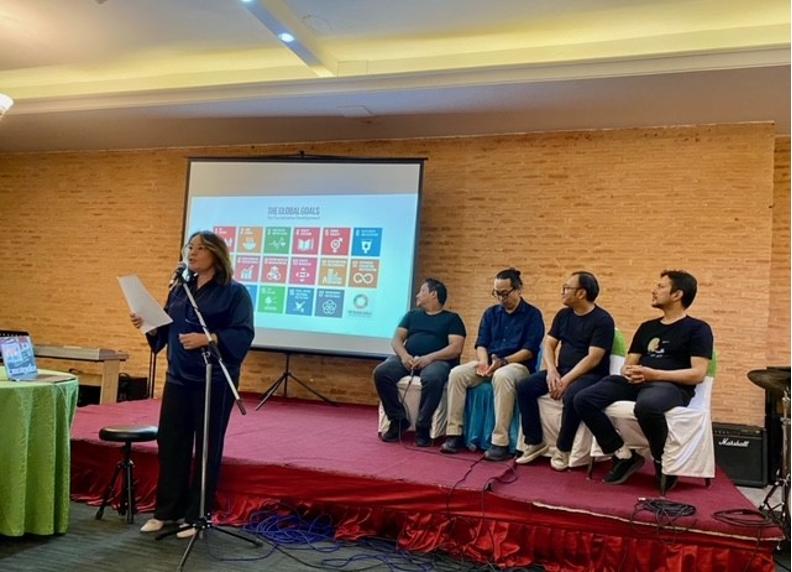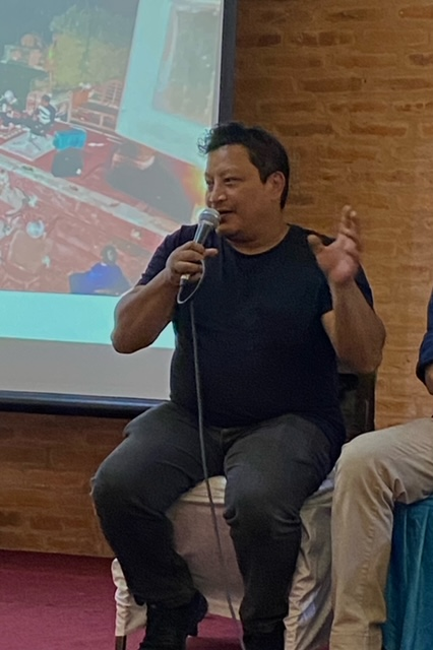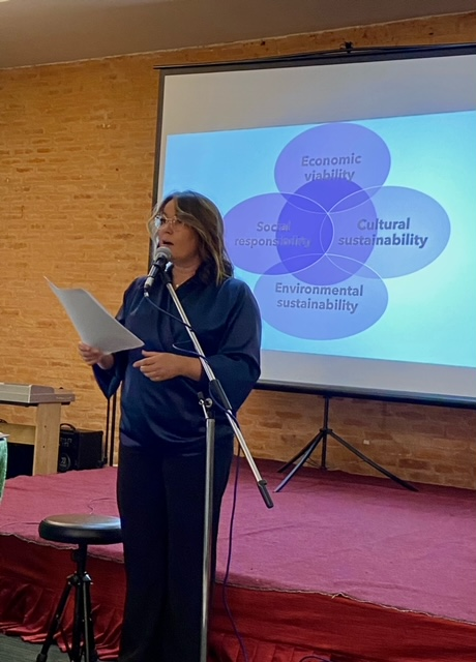Heritage musicians promoting sustainable development
In October 2024, researcher Vilma Timonen led a panel with Kutumba, a Nepali folk music ensemble, in the international Glomus camp in Kathmandu, Nepal, on how heritage musicians can engage with issues of sustainability.

Kutumba is one of the leading Nepali instrumental ensembles that has, over its 20 years of history, had a remarkable impact on the viability of the rich musical traditions of Nepal. The Glomus camp panel created connections between the UN’s 2030 Agenda Sustainable Development Goals and the values Kutumba has been promoting as part of their career as nationally renowned musicians. These values include: heritage awareness and viability, intercommunal interaction and inclusive music heritage, peace building, climate change, and gender equality, the latter being one of the most visible challenges in Nepali society and musical life. Kutumba’s socially and culturally engaged projects have reached audiences in Nepal and abroad and acted as an inspirational example of how economic viability in and through music is possible in the context of Nepal.
The Glomus camp was organised by the Nepal Music Center in collaboration with 31 higher music education institutions from 21 countries. Over 150 students participated in the 10-day camp, which took place at the Gokarna Forest Resort in Kathmandu.


Art makes a difference
Taidekasvatuksen tutkimusverkosto CERADAn blogista löydät verkoston uutiset, tapahtumat ja puheenvuorot. Verkoston tutkijat kirjoittavat taidekasvatuksen tutkimuksesta sekä taidealan korkea-asteen koulutuksen tutkimusperustaisesta kehittämisestä. Tutkimusverkosto on osa Taideyliopiston Tutkimusinstituuttia.
Research network CERADA’s blog offers news and views about how research into arts education can have an impact on society. CERADA researchers at Uniarts Helsinki blog about their work. The research network is part of Uniarts Helsinki Research Institute.
Latest posts
-
Not just "playing around" - the transformative power of early childhood music education
-
Call for participants: Societal engagement as part of studying in Sibelius Academy
-
Why Stories, Culture, and the Arts Matter for Health and Well-being
-
Taide ja kulttuuri demokratian tukipilareina: kohti tasa-arvoisempaa yhteiskuntaa
Follow blog